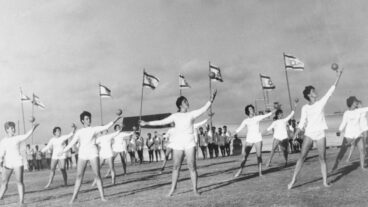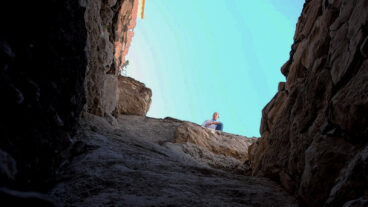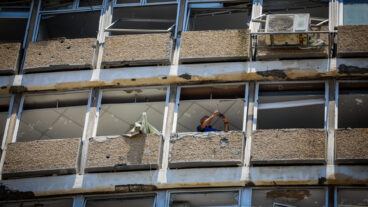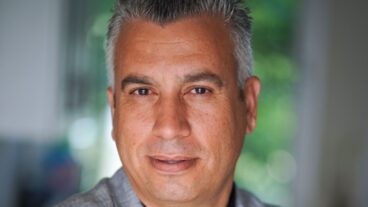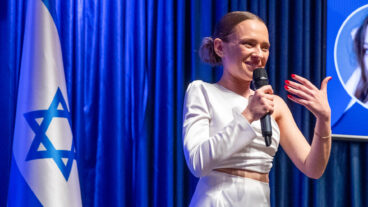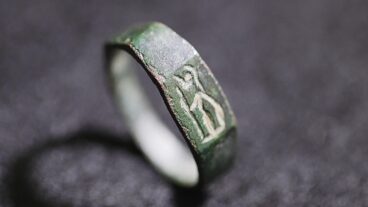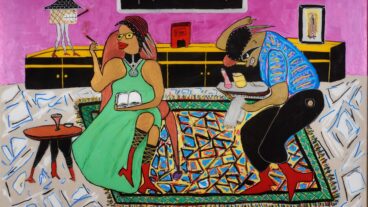Doctors from Israel traveled to Peru to pitch in at hospital emergency rooms after a fireworks explosion killed and injured hundreds.On Dec. 31, 2001, fireworks explosions ripped through Lima, Peru. The explosions and ensuing fire killed hundreds and seriously injured hundreds more. Four days later, a team of Israeli doctors arrived in Lima to begin treating burn victims.
Israel was the first country to offer assistance to Peru, according to Gershon Gan, Director of Policy Planning and External Affairs at the Israeli Ministry of Foreign Affairs’ Center for International Cooperation. The Center is known by its Hebrew acronym MASHAV. Under its auspices, Dr. Eyal Winkler, an attending physician at the Department of Plastic and Reconstructive Surgery and head of the burn unit at Chaim Sheba Medical Center, Tel Hashomer, was quickly dispatched, along with colleague Dr. Josef Haik, to Lima.
“After we arrived we were immediately taken to Loayza Hospital, Lima’s main hospital, where 64 of the injured were hospitalized,” Winkler said. “We rolled up our sleeves and started helping the local staff with whatever they needed.” The doctors not only performed surgery on more than 20 patients, they also assisted with the basics, such as changing dressings.
“Most of the patients we saw had medium to severe burns, primarily in the extremities, but also on the back and face. These are people who somehow managed to escape on their own. Our personal contribution was both in terms of physical work and in a few gadgets that we brought with us,” he said.
In addition to working at Loayza Hospital, the two Israeli doctors, who spent eight days in Peru, also provided consultations at two other hospitals. “A terrible tragedy happened there,” Winkler said. “The people came together in a very good way and greeted us warmly. A very nice cooperation developed, we exchanged information and have already agreed to continue to exchange information and learn from each other in those areas in which each side is strong.”
Before they left Peru, the doctors received honorary membership in the Peruvian Society for the Prevention of Burns. Peruvian President Alejandro Toledo acknowledged Israel’s assistance in the wake of the disaster in a nationally broadcast address to the nation. He also hosted the Israeli doctors at his presidential palace, took them to visit at a friend’s house and on a sightseeing flight. According to Winkler, Toledo is a strong supporter of Israel who is awaiting a formal invitation to visit Israel.
MASHAV is a special division within the Israeli Ministry of Foreign Affairs. The organization sometimes gets headlines during times of crisis, but Israel has a record of assisting other countries that spans six decades. After a 1958 trip to Africa, then-Foreign Minister Golda Meir formed the idea of assisting other countries. She believed Israel had to play a significant role in helping countries that had recently gained independence to develop. The work quickly branched out beyond Africa.
Since its inception, MASHAV has trained more than 200,000 people from 130 countries. MASHAV provides training in a variety of subjects including agriculture, public health and medical programs, community development, integrated rural regional development and other areas. MASHAV provides courses in Israel and in partner countries. Programs include on-the-spot courses, as well as short- and long-term consultancies.
In its early years, Israel had to absorb large numbers of immigrants and overcome a myriad of obstacles, which is just one of the reasons it is uniquely positioned to provide assistance to developing nations.
Commenting on the both recent mission to Peru and MASHAV’s continuing work, Dr. Yossi Baratz, a senior advisor to MASHAV said, “The doctors were in Peru during the critical week right after the fire. Each year we have about a dozen to 20 cases in which we provide humanitarian aid that involves sending people rather than equipment. We have responded numerous times. Just in the last few years we have been involved in other cases that have involved burn victims as well; for instance, when two trains collided in Cameroon (in 1998), we also sent doctors.” Baratz said MASHAV’s work is broad and includes a variety of ongoing projects and does not focus just on responding to crises.
In 2001, roughly 3,000 trainees participated in programs in Israel and another 4,000 in training overseas. Some of the medical missions conducted during the year included eye camps in Zimbabwe, Cameroon and Mozambique; malaria prevention in Senegal; mental health training in Cyprus and Romania; upgrading an intensive care unit in Turkey; and establishing a pressure chamber for deep sea diving in Eritrea.
Recent MASHAV agricultural programs include setting up an agricultural marketing program in Costa Rica; developing irrigation and greenhouse technologies in Hungary; a demonstration farm for adapted technologies; and crop diversification in China. There are also programs to introduce modern dairy farming in Kazakhstan and a program in the Philippines to introduce new agricultural technologies, as well as other ongoing projects.




